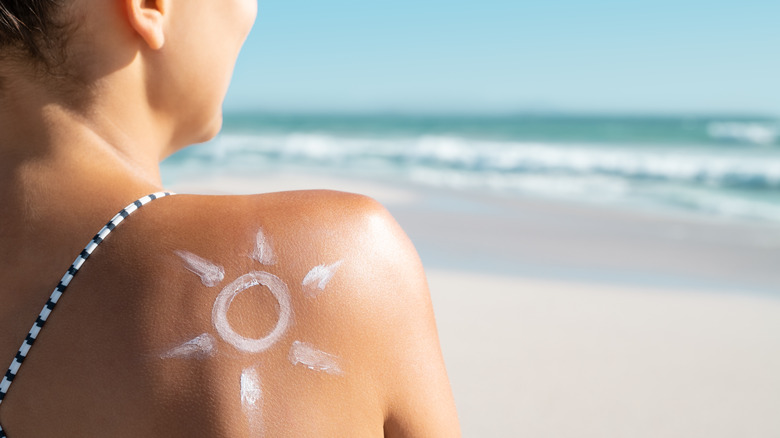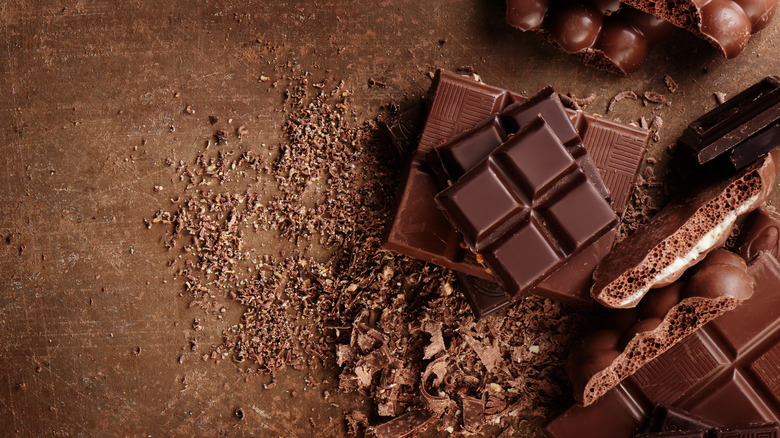The Surprising Thing You Should Eat After Getting A Tan
With so many skin care and make up products on the market, there is still nothing quite like that shimmery summer glow. Worshipping the sun on a day spent at the beach or poolside is on the summer to-do list of many, and as fab as that sounds, it's important to remember that your skin does need some shielding. When spending time in the sun pack up your favorite sunscreen, floppy hat, and a bar of dark chocolate for optimal UV protection.
According to Cosmopolitan, research shows that people who eat about one bar of dark chocolate every day were more protected from the sun's harmful rays more than those who did not eat chocolate. The 12-week study showed that those who ate chocolate rich in flavanols, like dark chocolate, showed "significant photoprotection" over the control group. However, you cannot just eat a Snickers and call it a day. The daily chocolate should be high in flavanols — that is, labeled "preserved with HF (high flavanol) levels".
Dark chocolate fights free radicals
According to Everyday Health, chocolate helps fight free radical damage to the skin with the antioxidants it contains by way of phenols and catechins. Frank Lipman, M.D., and founder of Eleven Wellness Center in New York City, tells Everyday Health that "Cocoa, or dark chocolate, contains four times as much phenols and catechins as tea — antioxidants that protect our skin from sunburn and skin cancer." He suggests eating two ounces of dark chocolate daily.
According to Bustle, not only will savoring a piece of dark chocolate assist in protecting your skin from sun damage, but the cocoa flavonoids in the chocolate have been linked to more hydrated and softer skin. Another reason to feel guilt-free when enjoying that Godiva dark chocolate ganache.
While indulging in dark chocolate daily may offer slight skin improvements and antioxidant inducing benefits, it will not protect your skin from sun damage alone. Finding a quality SPF lotion to wear daily, along with minimizing sun exposure on bare skin, are helpful ways to protect yourself (via Cleveland Clinic).


